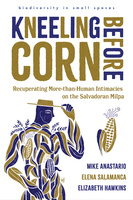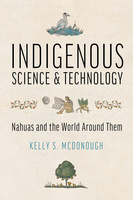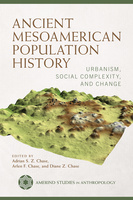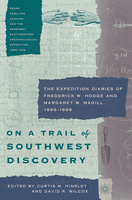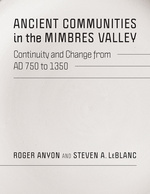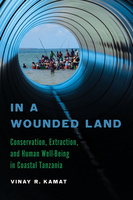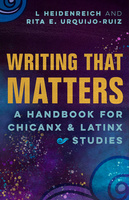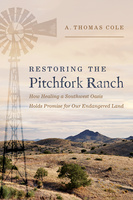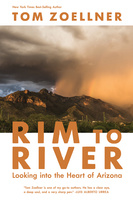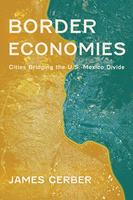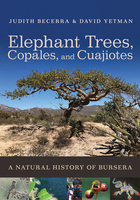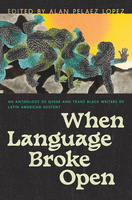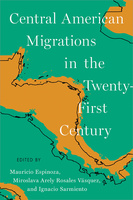The University of Arizona Press is the premier publisher of academic, regional, and literary works in the state of Arizona. They disseminate ideas and knowledge of lasting value that enrich understanding, inspire curiosity, and enlighten readers. They advance the University of Arizona’s mission by connecting scholarship and creative expression to readers worldwide.
A New Deal for Navajo Weaving
Reform and Revival of Diné Textiles
Kneeling Before Corn
Recuperating More-than-Human Intimacies on the Salvadoran Milpa
Indigenous Science and Technology
Nahuas and the World Around Them
Indigenous Science and Technology focuses on how Nahuas have explored, understood, and explained the world around them in pre-invasion, colonial, and contemporary time periods.
Border Killers
Neoliberalism, Necropolitics, and Mexican Masculinity
Ancient Mesoamerican Population History
Urbanism, Social Complexity, and Change
Five Suns
A Fire History of Mexico
We Stay the Same
Subsistence, Logging, and Enduring Hopes for Development in Papua New Guinea
On a Trail of Southwest Discovery
The Expedition Diaries of Frederick W. Hodge and Margaret W. Magill, 1886–1888
Ancient Communities in the Mimbres Valley
Continuity and Change from AD 750 to 1350
In a Wounded Land
Conservation, Extraction, and Human Well-Being in Coastal Tanzania
Focusing on the human element of marine conservation and the extractive industry in Tanzania, this volume illuminates what happens when impoverished people living in underdeveloped regions of Africa are suddenly subjected to state-directed conservation and natural resource extraction projects. Drawing on ethnographically rich case studies and vignettes, the book documents the impacts of these projects on local populations and their responses to these projects over a ten-year period.
Writing that Matters
A Handbook for Chicanx and Latinx Studies
Mujeres de Maiz en Movimiento
Spiritual Artivism, Healing Justice, and Feminist Praxis
Coastal Foragers of the Gran Desierto
Investigations of Prehistoric Shell Middens along the Northern Sonoran Coast
Resistance and Abolition in the Borderlands
Confronting Trump's Reign of Terror
The Space Age Generation
Lives and Lessons from the Golden Age of Solar System Exploration
Restoring the Pitchfork Ranch
How Healing a Southwest Oasis Holds Promise for Our Endangered Land
Restoring the Pitchfork Ranch tells the story of a decades-long habitat restoration project in southwestern New Mexico. Rancher-owner A. Thomas Cole explains what inspired him and his wife, Lucinda, to turn their retirement into years dedicated to hard work and renewal on 11,300 acres of grass- and wetlands. The Pitchfork Ranch is an inspiring promise for the future in the face of crippling climate change.
Ojo en Celo / Eye in Heat
Poems
Yaguareté White
Poems
Rim to River
Looking into the Heart of Arizona
Border Economies
Cities Bridging the U.S.-Mexico Divide
Elephant Trees, Copales, and Cuajiotes
A Natural History of Bursera
Woven from the Center
Native Basketry in the Southwest
Ancient Light
Poems
When Language Broke Open
An Anthology of Queer and Trans Black Writers of Latin American Descent
Light As Light
Poems
Ordinary Injustice
Rascuache Lawyering and the Anatomy of a Criminal Case
Hottest of the Hotspots
The Rise of Eco-precarious Conservation Labor in Madagascar
From the Skin
Defending Indigenous Nations Using Theory and Praxis
Central American Migrations in the Twenty-First Century
Ready Player Juan
Latinx Masculinities and Stereotypes in Video Games
This book fuses Latinx studies and video game studies to document how Latinx masculinities are portrayed in high-budget action-adventure video games. Developing an original approach to video game experiences, the author theorizes video games as border crossings, and defines a new concept—digital mestizaje—that pushes players, readers, and scholars to deploy a Latinx way of seeing constructive as well as destructive qualities.



